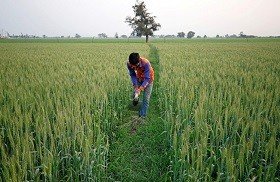Zonal KVK workshop held in MP
ICAR and KVKs should develop area-wise models of agricultural development
Union Agriculture Minister and Farmers’ Welfare Narendra Singh Tomar said that Krishi Vigyan Kendras (KVK) and agricultural scientists have an important role to play in overseeing agricultural development in the country.
He was speaking at a three-day zonal workshop of the Krishi Vigyan Kendras (KVKs) of Madhya Pradesh and Chattisgarh was organized from July 29–31, 2020.
He added that the urgent need for agricultural production to increase so that the youth are encouraged to take up agriculture as a means of livelihood.
KVKs must guide the small and marginal farmers on agricultural practices that help them to get maximum profit even from small landholdings. ICAR and the KVKs should develop area-wise models of agricultural development that appeal to the farmers.
Stressing the importance of organic and natural farming, Tomar said that these were vital for healthy soil and clean environment and to increase exports and make agriculture profitable.
Maintaining soil health and dealing with climate change were important challenges before the scientists.
Pointing out that there are large tribal populations in Madhya Pradesh and Chattisgarh who are already practising natural farming without use of chemical fertilizers and pesticides, the Minister exhorted the agricultural scientists to help them in improving this practice so that organic farming is promoted further and animal rearing is made profitable.
ICAR and KVKs should develop area-wise














